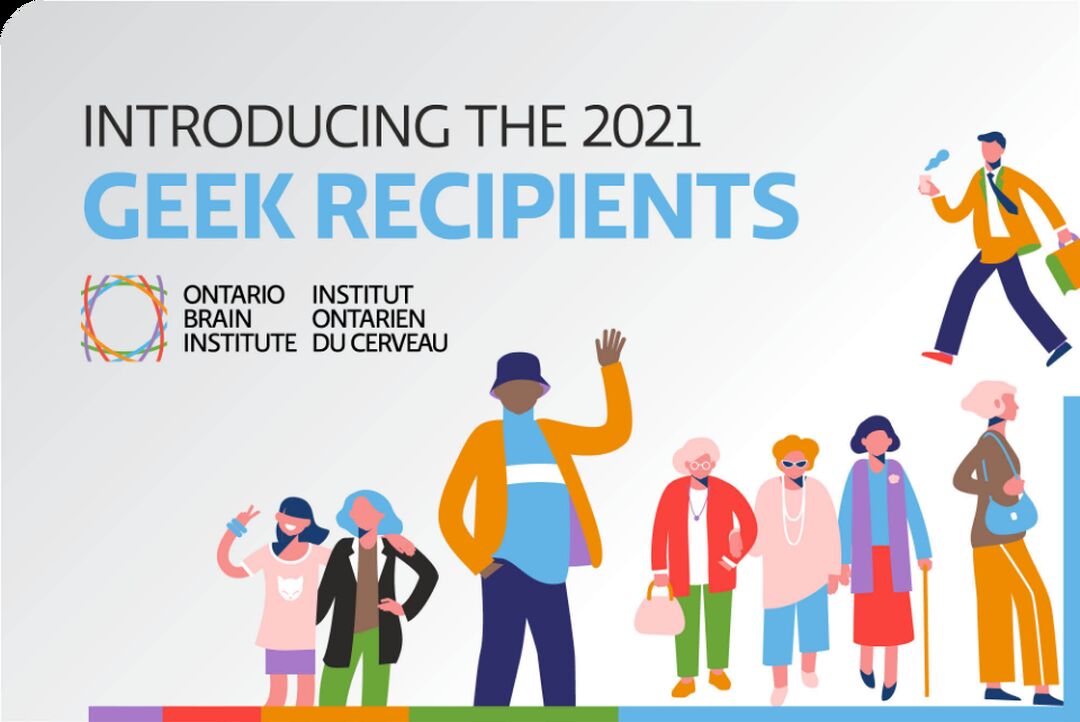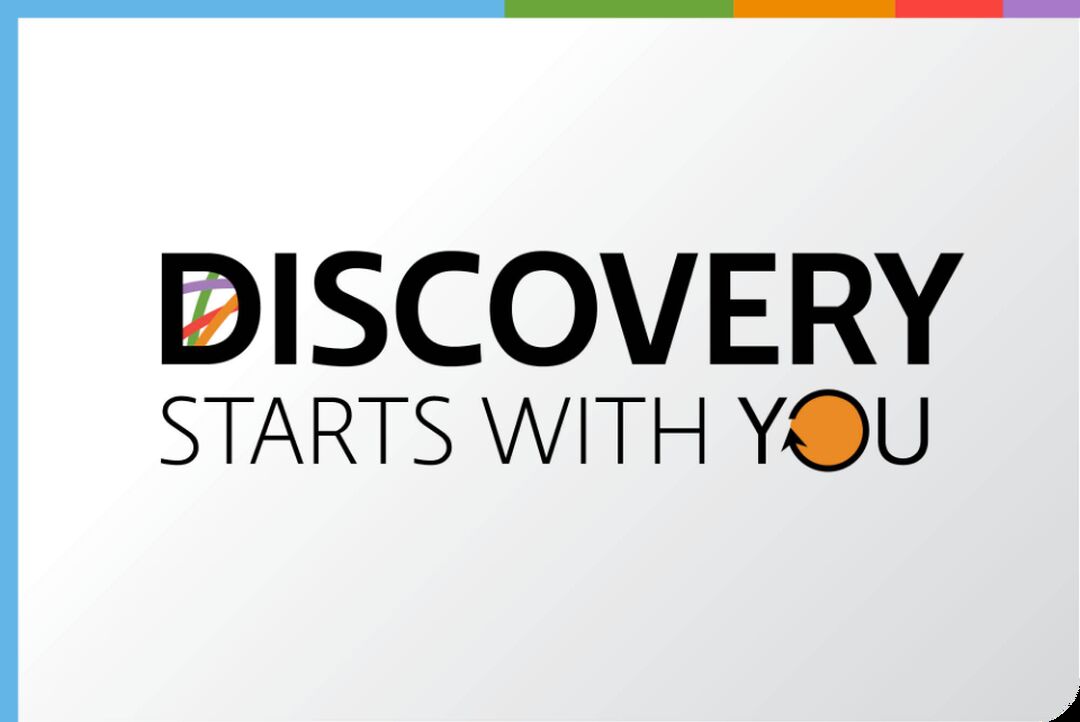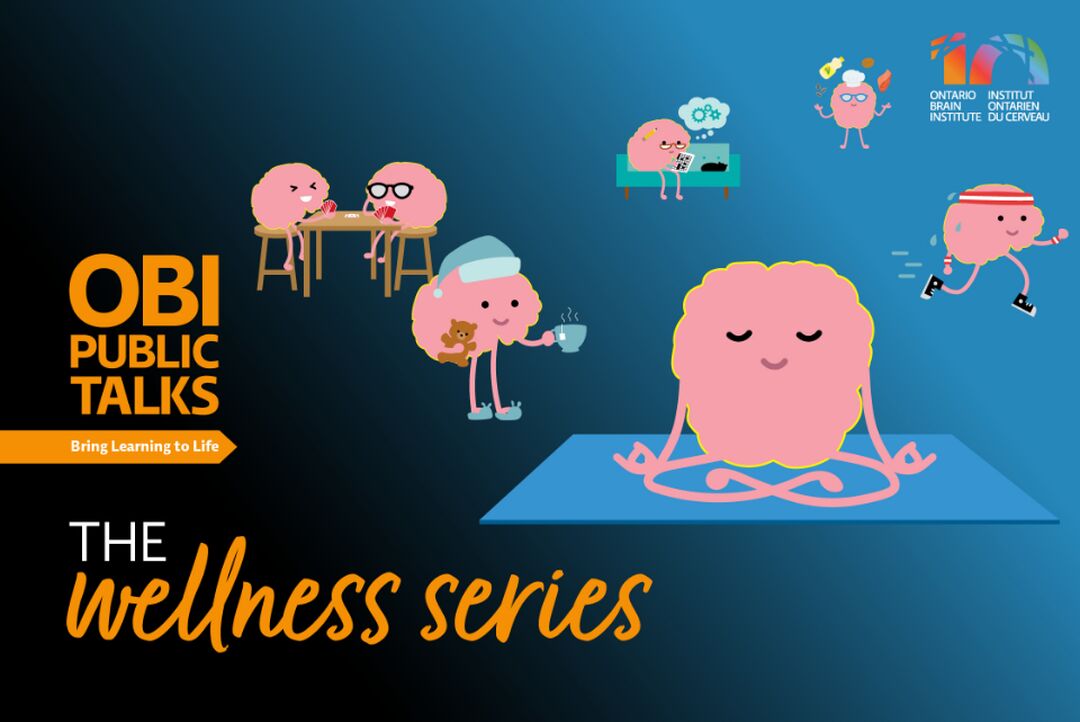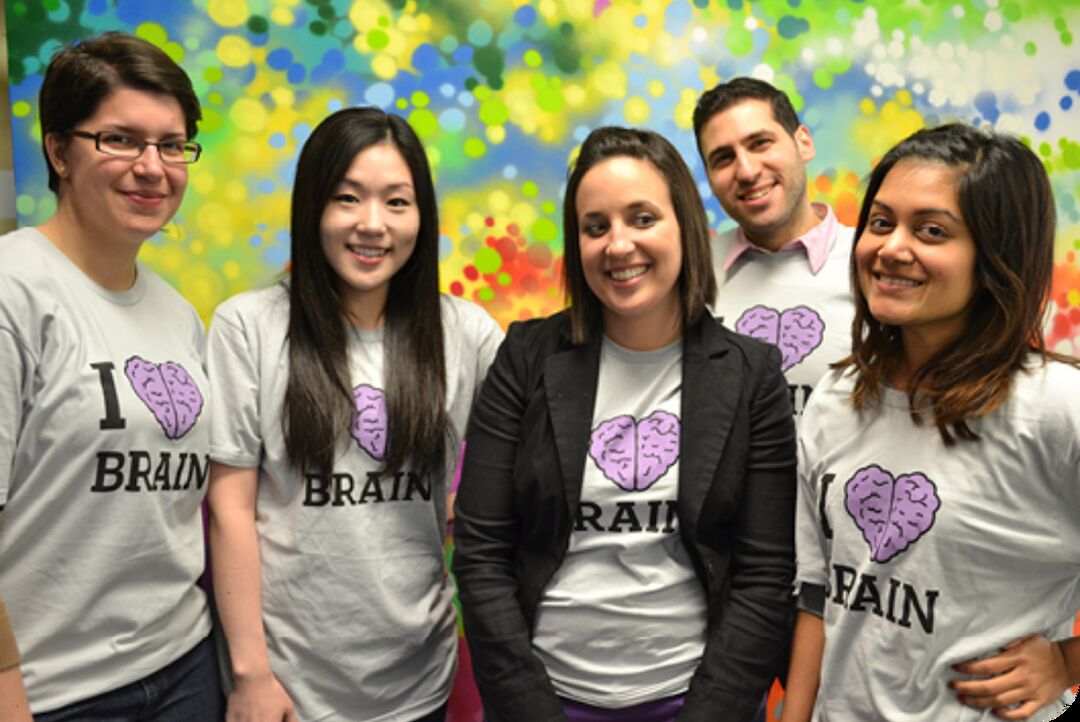Supporting Community Care
More StoriesCommunity care is a key factor in supporting brain health. Brain disorders, such as concussion, epilepsy, and depression, have societal impacts beyond the one in three individuals living with the condition. Family, friends, co-workers, and community are all affected and their involvement is essential in providing much needed care and support.
In this section, read the following stories of how OBI supported community care:

Community Care: Building evidence and focusing on the essential elements for quality care
Community organizations play a key role in supporting and caring for people’s brain health. OBI recognizes, supports, and partners with community groups to enhance evidence-based care in the community through theGrowing Expertise in Evaluation and Knowledge Translation (GEEK) program. We do this by providing funding, evaluation expertise, and skill building and networking opportunities.
Over the course of the GEEK program, OBI funds a cohort of programs that represent a range of brain disorders and challenges.
In 2021, three new GEEKs were selected to join the growing list of community groups supported by OBI.
- TheFamily Navigation Project, which helps youth mental health and addictions concerns and their families navigate and access the most appropriate services and resources.
- The Acquired Brain Injury (ABI) Transition Program, delivered by Vista Centre Brain Injury Services, which supports the safe transition of ABI clients back to the community through a counseling partnership.
- Epilepsy-Specific Mental Health Program, delivered by Epilepsy Ontario, which delivers remote-based mental health services to people living with epilepsy in areas where there is no local mental health programming.
Recently, the OBI team stepped back and reflected with the GEEKs on what the key elements of success are for delivering evidence-based community care. We heard that:
- Lived experience is not something that can be replicated and the inclusion of those with lived experience to help develop, facilitate, and/or deliver programming brings a lot of value for clients.
- Taking time to build trust and personal connections with the communities/clients served goes a long way.
- And focusing on building strong partnerships between all parties involved in a program is essential.
These lessons offer the foundation for quality community-based care. By building in evaluation on-top of these foundational elements, our aim is for community groups to be able to sustain, spread, and scale their programming to help more people achieve their brain health goals.

We Go Further Together: Discovery Starts With You
We know how important data is to researchers and how it is the main driver of advances in understanding of health, disease, and care, but we must not forget where this data comes from: the literal blood, sweat, and sometimes tears of research participants. Their contributions to research cannot be understated.
In 2021-22, across the Integrated Discovery Programs (IDP), and with patient and community advisory members, members of the OBI knowledge translation team created a series of resources to recognize how individual contributions transform health outcomes for people with brain disorders, and to keep patient partners in the loop of what happens to their health data when they agree to share it.
Discovery Starts With You (or DSWY), an innovative set of blogs, videos and podcasts about the importance of data sharing, was originally conceived to thank the patients, care partners, and families who have taken the time to participate in research. But like when members of the brain health community agree to share their results to advance research, they become part of something bigger, so did DSWY.
A patient partner who participated in one of the DSWY podcasts, noted the following.
“I find this really interesting and exciting from the perspective of a person with lived experience. I’m participating in a study about aging and neurodegeneration while at the same time I’m contributing to the possibility of making breakthroughs that lead to a better understanding not only of aging and neurodegeneration, but also depression and autism and epilepsy and cerebral palsy and concussions and so on. So, the potential of my participation in one OBI-funded research study is amplified because of OBI’s approach.”
From a video showcasing health data’s journey from lab to life to podcasts about participating in research and leaving a data legacy, initiatives like Discovery Starts With You help OBI to prioritize lived experience throughout the research process.

OBI Public Talks
At the Ontario Brain Institute, knowledge translation is one of the key steps in bringing science and innovation back to the community. The OBI team is always looking for ways to move research and new evidence beyond academic forums and to share the exciting advances that are happening in neuroscience and brain health right here in Ontario.
One of the primary ways in which we do so is through our Public Talks program. Since launching the initiative in 2014, to date, OBI has hosted 30 events that cover a wide range of topics, and we estimate that we have reached close to 18,000 people.
2021-22’s Wellness Series offered up some of our most popular topics to date, covering a range of topics from the importance of daily movement on mental health to the link between food and brain function. In total, the four talks – Tech for a Better Brain, Finding Meaning in Movement, Your Brain on Food, and Three Lives, Many Stories – were viewed by almost 1,700 individuals from over than twelve different countries.
The full Wellness Series is available on OBI’s YouTube channel.

Integrated Discovery Programs: Outreach Round-Up
The team of knowledge translation and communications specialists across OBI’s six Integrated Discovery Programs (IDP’s) kept themselves busy in 2021-22, organizing 38 events that reached over 4,200 people. Read on for highlights of these events, as well as descriptions of other innovative initiatives.
- CP-NET (Childhood Cerebral Palsy Integrated Neuroscience Discovery Network) held its annual Science and Family Day on October 23, 2021. Organized virtually for the second time in as many years, over 300 youth, parents, researchers, and healthcare professionals attended the event from all over the world. Keynote speakers included McGill University’s Dr. Evelyn Constantin, who spoke about sleep issues in children with cerebral palsy (CP), while members of CP-NET presented an innovative hip surveillance project, youth engagement in research, and a cross-disorder sleep study. The day’s agenda also featured an art presentation by Jeffrey Mitsuo, a Toronto-based artist living with CP. MORE
- ONDRI’s (Ontario Neurogenerative Disease Research Initiative) Community Engagement Day was well attended with 70 people participating in the virtual seminar. Entitled Monitoring Dementia & Associated Diseases Through ONDRI's Research, the event took place on January 25, 2022, and featured updates about the fully remote HANDDS-ONT study, in which participants provide clinical information through cognitive, mood and wellness questionnaires, as well as data from wearable sensors. The goal of the study is to understand how diseases associated with dementia affect different people, to potentially detect diseases earlier, and to explore ways to help people manage their daily health related behaviours. HANDDS-ONT is currently underway and still recruiting. MORE
- EpLink, OBI’s epilepsy program, held a series of four webinars in March 2022 to mark Epilepsy Awareness Month. Moderated by Dr. Mac Burnham, EpLink co-director and professor in the Department of Pharmacology and Toxicology at the University of Toronto, the topics were wide-ranging and explored subjects such as epilepsy and school success, early diagnosis and treatment, and emerging treatments for seizures. MORE
- The CAN-BIND (Canadian Biomarker Integration Network in Depression) team recently created a new knowledge translation tool titled Research Findings in Clear Language, which is a series that aims to share research findings with the broader community in more understandable language. Currently, anyone can access six summaries covering research within brain structure and epigenetics, childhood maltreatment and cognitive functioning in patients with major depression, hippocampal tail volume as a predictive biomarker of antidepressant treatment, and a report on the CAN-BIND-1 study looking at personal depression treatment. MORE
- In July 2021, the POND (Province of Ontario Neurodevelopmental Disorders) Network team released a viral video that guides neurodiverse children and their families through the COVID-19 vaccination process, as well as explains why it’s so important to get the vaccine. The video, which is narrated by children, begins with a quick introduction of the new type of vaccines available for COVID-19, and explains how they work to protect against the virus. It also outlines the complete steps to getting the vaccine and demonstrates how the process can be easily adapted to anyone's specific needs – all in a fun, informative, and accessible way. MORE
- This year, CONNECT (Concussion Ontario Network) formed solidified partnerships to create and distribute knowledge resources surrounding concussion. Of notable mention, CONNECT supported the release of an informative podcast episode made by HeadsUpCAN and the Ontario Brain Injury Association which discusses the experiences of individuals who have had a concussion or traumatic brain injury (TBI). The Concussion/TBI Within the Veteran Community podcast is experience driven and seeks to educate, support, and spread awareness on the various aspects of concussion and TBI. The podcast also facilitates an important discussion regarding challenges members of the Canadian Armed Forces have with brain injury and stigma. MORE
